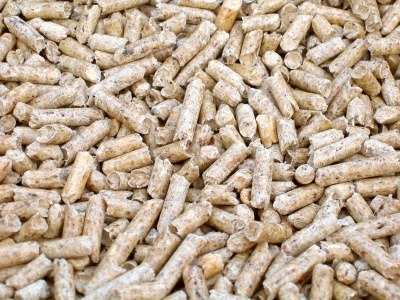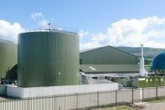Bioenergy: ‘No regrets’ solution to cutting carbon emissions
The UK is not on track to meet future carbon budgets – but a new report from the Renewable Energy Association (REA) claims that bioenergy holds the key to cutting carbon emissions.
The UK’s carbon budgets, laid out in the 2008 Climate Change Act, set out allowances for the amount of greenhouse gases that the UK can legally emit over five periods, each lasting for five years. We are currently in the third carbon budget period (2018 to 2022), during which the country is required to reduce greenhouse gas emissions to 37 per cent below 1990 levels.
The Committee on Climate Change (CCC) tracks progress towards emissions reduction and found that while the UK has met the first and second budgets and is on track to outperform the third, the fourth and fifth will not be met at current rates of reduction. The latest forecast from the Department for Business, Energy and Industrial Strategy (BEIS) reveals that the UK will go over its fourth carbon budget (2023 to 2027) by 139 million tonnes of CO2 equivalent (CO2e), and will breach the fifth budget (2028 to 2032) by 245 million tonnes CO2e. These shortfalls have both increased since 2017 predictions.
 Investment in anaerobic digestion (AD) and other bioenergy technologies will be needed to achieve net-zero carbon emissions
Investment in anaerobic digestion (AD) and other bioenergy technologies will be needed to achieve net-zero carbon emissions

Bioenergy: A ‘no regrets’ solution?
The REA report suggests that sustainable bioenergy could provide as much as two thirds of the projected shortfall of the fifth carbon budget – and could help the UK to achieve net zero carbon emissions by 2050, a target recently recommended by the CCC.
In May, the CCC stated that much greater investment in low-carbon energy technologies would be required to achieve net zero carbon emissions, but that the 2050 goal could be feasible if a number of other changes were introduced, including a ban on biodegradable waste to landfill and a 70 per cent recycling rate by 2025.
“If the UK is to achieve net zero greenhouse gases by 2050 and meet its legally binding carbon budgets, we must adhere to the advice of the CCC and significantly increase the deployment of renewable technologies,” said Dr Adam Brown, author of the REA report.
“Bioenergy presents numerous options across heat, power and transport, and the UK is not in a position to be casting away renewable, sustainable and cost effective solutions. This report outlines the possibilities for the UK if we grasp the opportunity the bioenergy sector presents.”
The REA report sets out how bioenergy technologies like anaerobic digestion, biomass boilers and biofuels could be deployed at a greater rate, providing a potential 117 terawatt-hours (TWh) of energy across heat, transport and power. This could see the contribution of bioenergy to the overall energy mix in the UK rising from 5.5 per cent in 2020 to 15 per cent in 2032 – enough to make up two thirds of the projected shortfall in the fifth carbon budget. This is also, the REA says, likely to increase the number of jobs by more than 100,000 by 2032.
REA Chief Executive Dr Nina Skorupska said: “Increasing the deployment of bioenergy is the only realistic solution to affordably and sustainably bridge the anticipated energy gap and rapidly decarbonise the UK in line with legally binding targets.
“Bioenergy is a no regrets solution to achieving these targets due to its ability to provide immediate and affordable greenhouse gas savings through existing infrastructure whilst facilitating the development and commercialisation of future technologies.”
Next steps

The Renewable Heat Incentive (RHI), set up to provide incentives for those installing renewable heating technologies, such as biomass boilers, has also come under fire. A government inquiry in 2018 found that the RHI had failed to live up to expectations: BEIS predicted that by 2020, there would be 513,000 renewable heating systems installed under the RHI, but this prediction has been dropped to 111,000, 22 per cent of the original estimate.
However, some relief has come with the announcement this week that BEIS has extended the deadline for RHI applications until 31 January 2021. This means that projects wishing to secure a tariff guarantee under the RHI will not need to be commissioned until the start of 2021, as opposed to the previous deadline of January 2020 – a date that industry feared would lead to projects being abandoned without enough time to complete them.
Charlotte Morton, Chief Executive of the Anaerobic Digestion and Bioresources Association (ADBA), commented: “The existing timeframe was simply too tight for some of our members to complete and connect projects, leaving them at risk of missing out on being eligible for the scheme. We will continue to work with Ministers on support for our sector to encourage more green gas to grid, but this is an extremely welcome step.”
The full REA report on the decarbonisation potential of the bioenergy industry can be read on the REA website.








